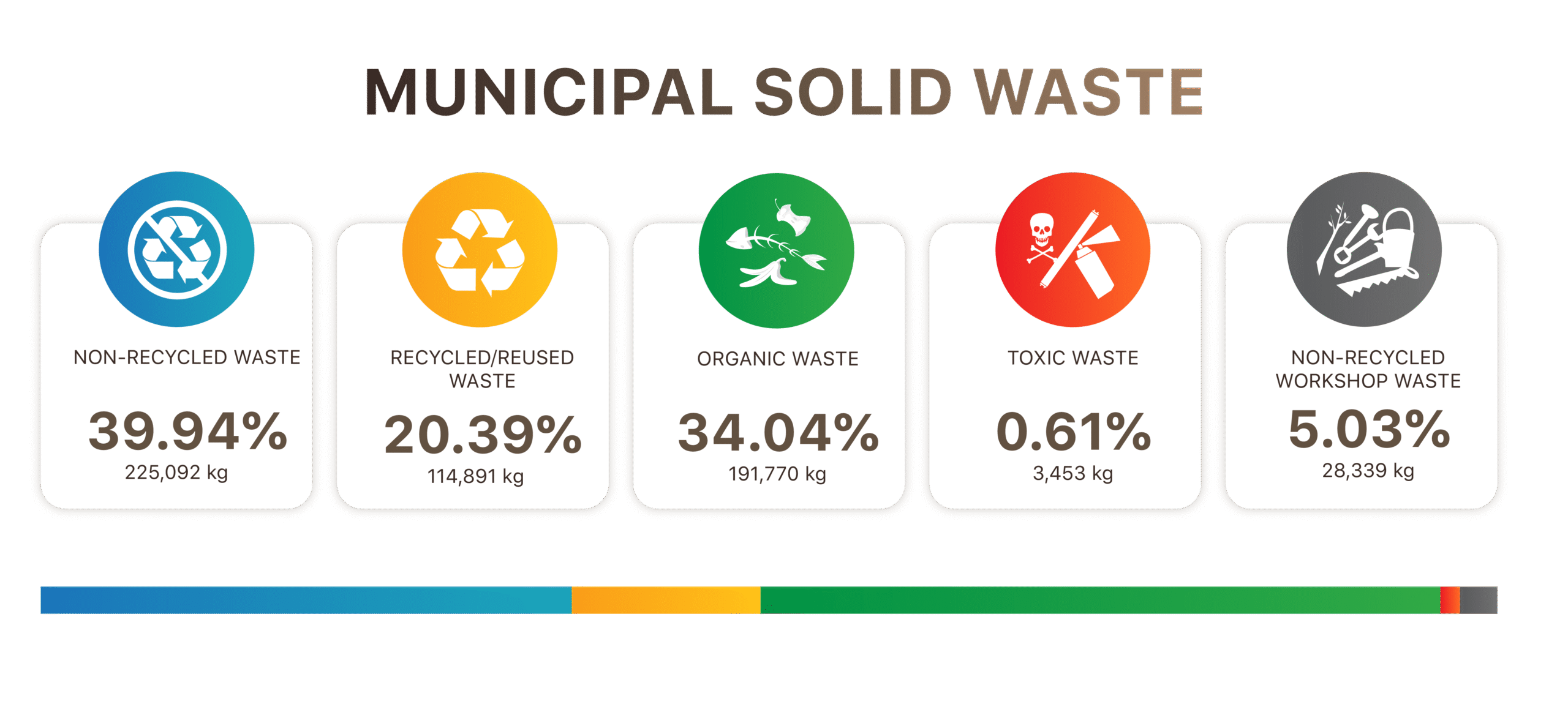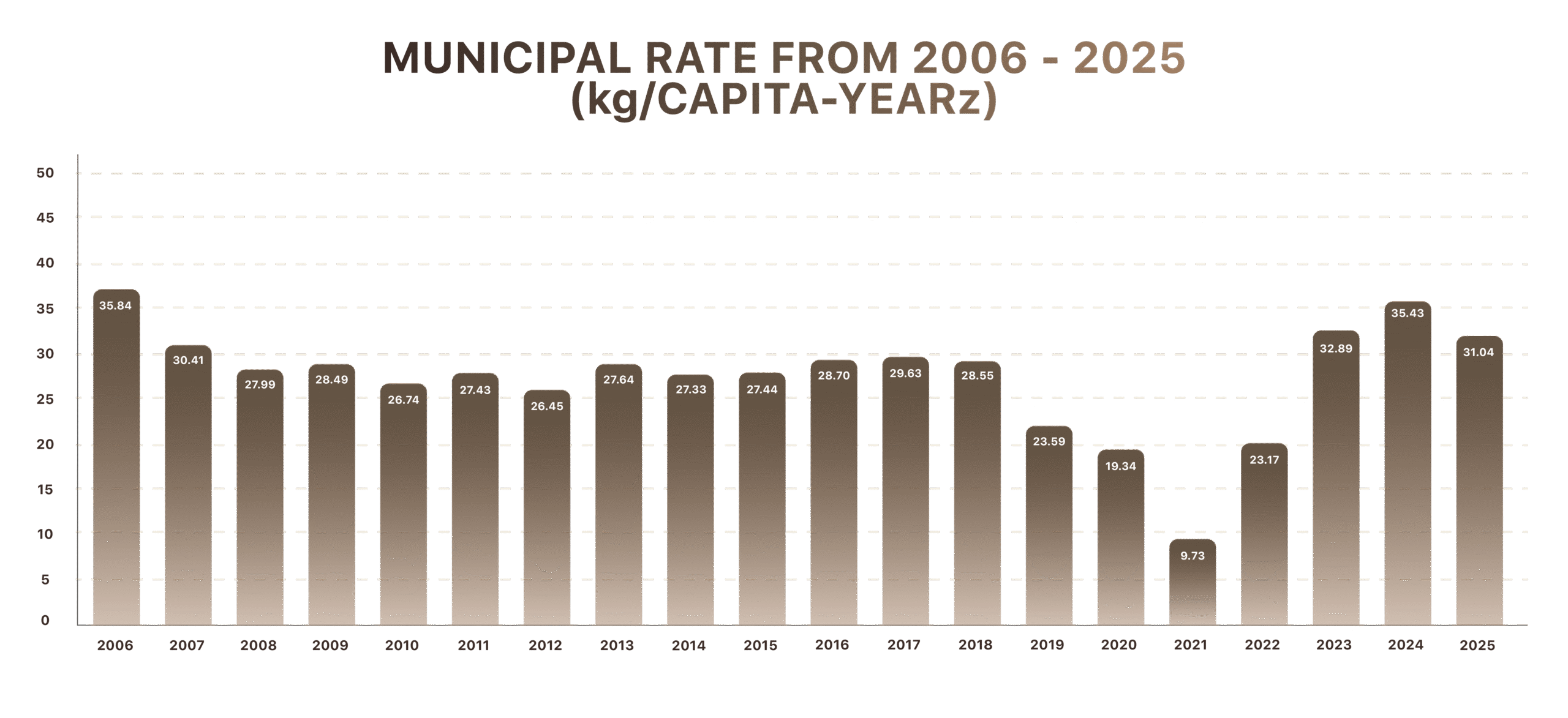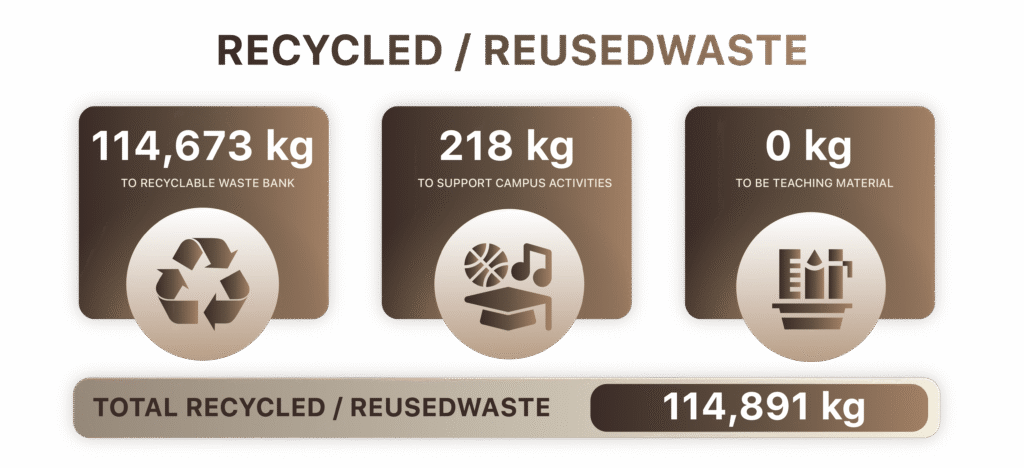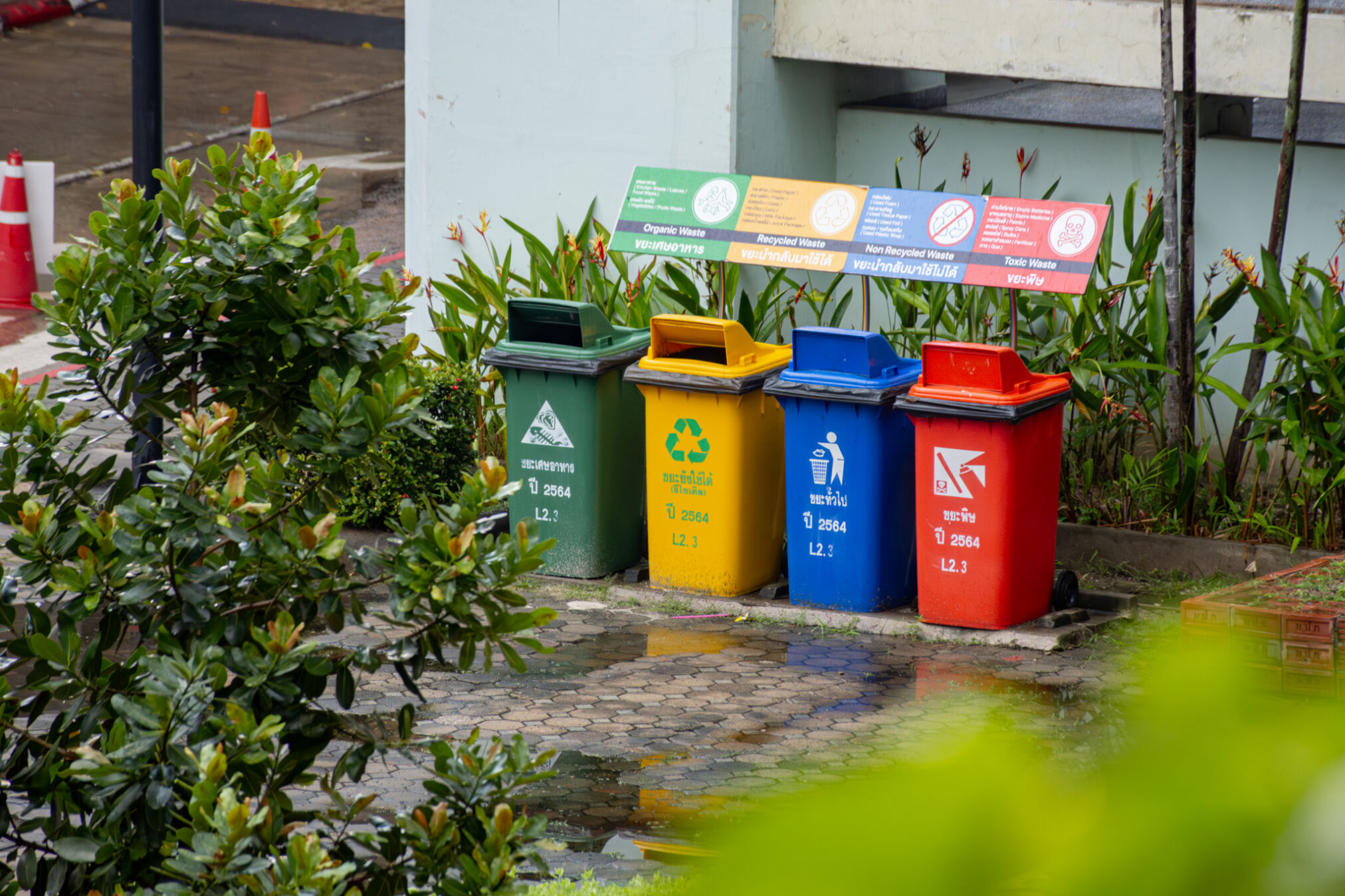Municipal Solid waste Generation in KMUTT
Target: 40% of municipal solid waste reduction by 2024 compared to 2006 baseline
Current Status: In 2024, 1.14% of municipal solid waste reduces, compared to 2006 baseline.

Municipal Waste Trends and Composition: A Focus on Sustainable Management
ThThe first chart illustrates the Municipal Waste Rate from 2006 to 2025, measured in kilograms per capita per year. Over the years, the rate has fluctuated, showing a notable decline before rebounding in recent times. Starting at 35.84 kg per capita in 2006, it dropped to its lowest point of 9.73 kg in 2021, before increasing again to 32.89 kg in 2023, 35.43 kg in 2024, and continuing to rise in 2025. This trend reflects the evolving nature of waste generation and highlights the importance of sustainable waste management within the university.
The second chart presents the composition of Municipal Solid Waste in 2025:
- Non-Recycled Waste accounts for 39.94% (225,092 kg) the largest portion, emphasizing the need for improved reduction and segregation strategies.
- Recycled/Reused Waste makes up 20.39% (114,891 kg), reflecting ongoing recycling efforts and the potential for scaling up circular practices.
- Organic Waste represents 34.04% (191,770 kg), pointing to a key opportunity for composting and bio-resource recovery.
- Toxic Waste constitutes 0.61% (3,453 kg), requiring careful management and safe disposal.
- Non-Recycled Workshop Waste contributes 5.03% (28,339 kg), highlighting the importance of targeted waste reduction initiatives in academic and research facilities.
These insights illustrate KMUTT’s ongoing commitment to reducing environmental impact, enhancing waste segregation, and promoting a sustainable campus ecosystem through effective waste management practices.


KMUTT’s Waste Management Solutions
Based on the latest data showing municipal waste rate trends from 2006 to 2025, which reveal fluctuations and a noticeable rise in recent years, King Mongkut’s University of Technology Thonburi acknowledges the increasing challenge of waste management within its campus and surrounding communities. To address this challenge sustainably, KMUTT has implemented a series of strategies aimed at promoting waste reduction, resource recovery, and responsible disposal practices.
1. Promoting Reduction of Non-Recyclable Waste
With non-recycled waste accounting for 39.94% (225,092 kg) of the total waste in 2025, KMUTT aims to minimize non-recyclable materials through awareness campaigns and policy-driven initiatives. These include promoting waste segregation, reducing single-use plastics, and encouraging the use of reusable items across campus.
2. Enhancing Organic Waste Management
Organic waste represents 34.04% (191,770 kg) of total waste. KMUTT is advancing composting programs and exploring innovative waste-to-resource technologies to convert food and green waste into compost and bio-based materials, thereby reducing landfill burden and promoting circular use of organic resources.
3. Increasing Recycling and Reuse Efforts
In 2025, the total recycled and reused waste reached 114,891 kg, consisting of:
- 114,673 kg sent to the Recyclable Waste Bank,
- 218 kg reused to support campus activities, and
- 0 kg allocated as teaching materials.
KMUTT continues to enhance its recycling infrastructure, expand collection points, and promote participation in recycling initiatives to move toward a zero-waste campus.
4. Specialized Management for Workshop Waste
Non-recycled workshop waste accounts for 5.03% (28,339 kg) and primarily originates from laboratories and workshops. The university has adopted targeted waste reduction measures, including sustainable material substitution and resource-efficient design to minimize waste at the source.
5. Ensuring Safe Disposal of Toxic Waste
Although toxic waste represents only 0.61% (3,453 kg), it requires careful management. KMUTT ensures strict adherence to environmental and safety regulations in handling, storage, and disposal, preventing contamination and safeguarding the health of campus users and nearby communities.
Through these comprehensive strategies, KMUTT reaffirms its commitment to sustainable waste management, resource efficiency, and environmental responsibilitypaving the way toward becoming a model Green University and a leading example of sustainable practices in Thailand’s higher education sector.
Inorganic Waste Treatment
In 2025, the results from KMUTT’s municipal solid waste segregation show that non-recycled waste and non-recycled workshop waste which include discarded paper, plastic, metal, and other inorganic materials totaled 253,431 kg. These inorganic wastes were sent to outsourced services managed by the Bangkok Metropolitan Administration (BMA) for landfilling and incineration, in compliance with national waste management standards. KMUTT continues to track and monitor the entire disposal process to ensure transparency and environmental compliance. All inorganic waste is transported to the Ratchathewa Power Plant, where biogas is extracted from the landfill, turning waste into usable energy and minimizing environmental impact.


